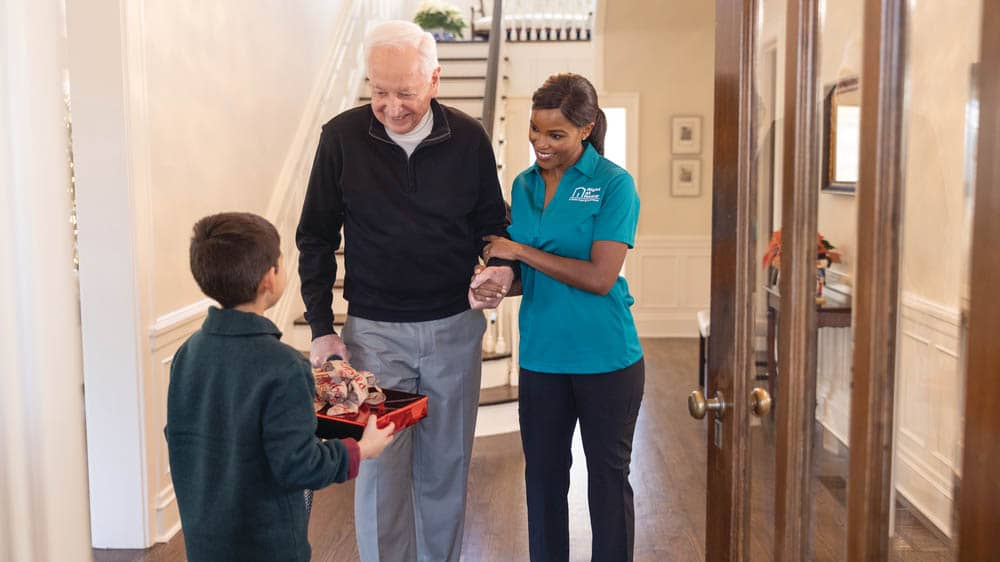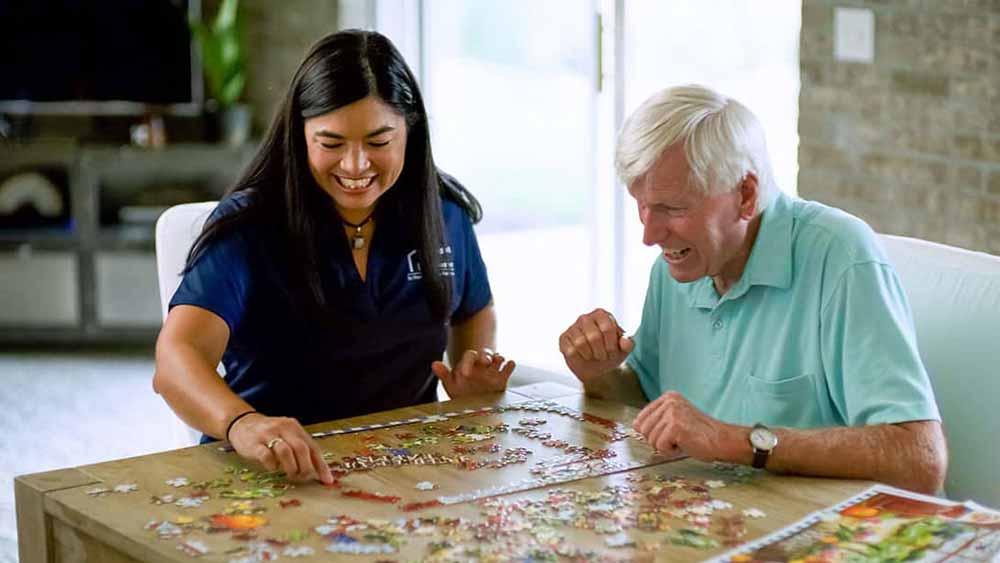

Balancing Act: Tips for Family Caregivers To Ease the Stress of Caring for a Loved One With Alzheimer’s
Your mother may have often said patience is a virtue. However, when you’re the adult child or another family caregiver of a loved one with Alzheimer’s or other dementia, patience is sometimes hard to muster. If you’re feeling impatient with your loved one, it’s likely due to stress. According to the Mayo Clinic, signs of family caregiver stress include:
- Feeling burdened or worrying all the time.
- Feeling tired often.
- Sleeping too much or not enough.
- Gaining or losing weight.
- Becoming easily irked or angry.
- Losing interest in activities you used to enjoy.
- Feeling sad.
- Having frequent headaches or other pains or health problems.
- Misusing alcohol or drugs, including prescription medicines.
- Missing your medical appointments.
Family Caregiver Stress Can Affect Health Negatively
The American Psychological Association states, “Stress affects all systems of the body including the musculoskeletal, respiratory, cardiovascular, endocrine, gastrointestinal, nervous, and reproductive systems.” The National Institutes of Health notes that studies have shown that caregiving is linked to a variety of long-term health problems, including heart disease, cancer, diabetes, arthritis, and excess weight. Family caregivers are also at risk for depression or anxiety, may have problems with memory and paying attention, and may experience back or muscle injuries from lifting the person they care for.
Tips for Family Caregivers Seeking Help
If you’re a family caregiver and find yourself losing patience with your loved one or others, it’s time to reach out for help. Here are some ideas:
- Ask a relative to step in for a day. Ask a sibling or other close family member to give you a short break so you can have some time to yourself to rejuvenate. Ideally, schedule something regularly, as even a couple of hours a week can help.
- Consider hiring an in-home caregiver for respite support. Right at Home’s insured/bonded caregivers are experienced in caring for seniors with dementia and can help keep them safe and engaged. Whether a few hours a week or a few hours a day, a short break can provide much-needed relief for your well-being.
- Join a support group. According to HelpGuide.org, “a support group is a gathering of people facing common issues to share what’s troubling them. Through the sharing of experiences, they’re able to offer support, encouragement, and comfort to the other group members, and receive the same in return.” Alzheimer’s support groups offer support and understanding. Check with your local community center or place of worship to see if they offer such a group. You can also find local support groups at Psychology Today.
- Educate yourself. Seek resources for family caregivers to learn more about Alzheimer’s and dementia, what to expect, and care strategies. Right at Home offers a FREE dementia and cognitive support guide that provides tips and techniques to help you find new ways to connect with your loved one despite cognitive change.
Family Caregiver Self-Care Tips
As much as you want to put your loved one first, you can’t help them without caring for yourself, too. Right at Home offers these suggestions for doing just that:
- Maintain a healthy diet.
- Keep up with your annual medical checkups and routine tests.
- Maintain your friendships.
- Keep up with your hygiene.
- Splurge on a massage.
Other ways to improve your patience and relieve stress might include planning a night out for dinner and maybe a movie with your spouse or a friend, taking up yoga or getting a little exercise with a walk, taking a relaxing bath, or reading a book while listening to music.
How Right at Home Can Help
For over 25 years, Right at Home has been helping families care for their aging loved ones with a wide range of in-home care services. Right at Home offers a wealth of helpful articles and other resources for family caregivers. To get the latest articles delivered directly to your email inbox each month, subscribe to our Caring Right at Home e-newsletter. If you would like more information about our respite care services, use our office locator to speak to an aging expert near you.







